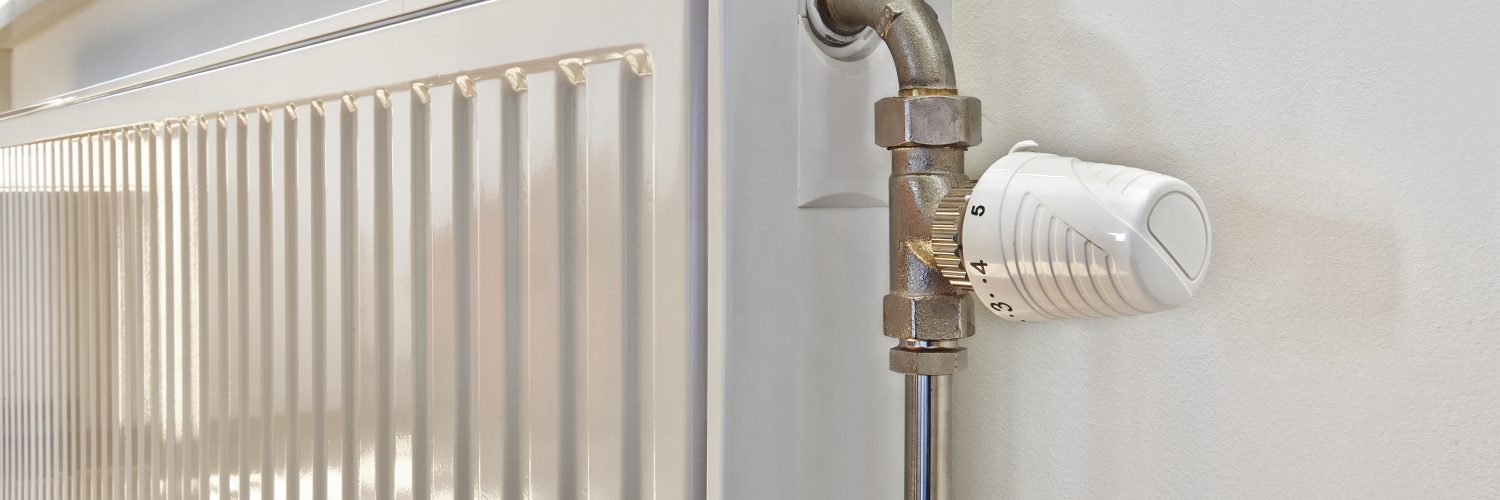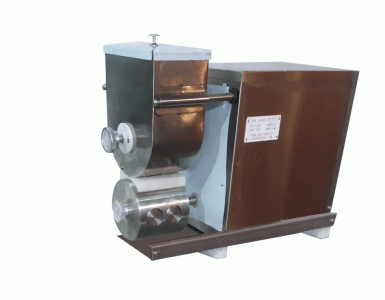Ki Tisa 5781
As cold temperatures continue to push across most of the United States and Israel, this week’s essay will focus upon the important Halachic question of activating heating systems or appliances on Shabbos. Today, most homes have automated thermostats and/or programmable timers, which are clearly the optimal method of heating a home on Shabbos. However, the options are limited when these devices are not available or not set correctly before Shabbos begins.
As we will see, the Halacha depends on the person who requires heat. Is he healthy or sick? Is his life in danger? Is he a child or elderly person? We will also see a distinction between activating the heating directly and enlisting a non-Jew to do it (“Amira l’Nachri”), and will encounter the important rule, “Hakol Cholim Etzel Tzina” – “Everybody is considered a sick person with regard to the cold”.
We will conclude with a discussion of whether air conditioning during hot weather is Halachically similar to heat during cold weather.
- “Hakol Cholim Etzel Tzina”
The Shulchan Aruch (O.C. 276:5) rules:
In cold lands, one may instruct a non-Jew to light a fire for the sake of children. Adults are also allowed to warm themselves by it. And one may even [instruct the non-Jew to] light it for adults if the weather is very cold (“Kor Gadol”), for everyone is considered a sick person with regard to the cold. [The Halacha is] not like those who are lenient even when it isn’t extremely cold.
The source to permit asking a non-Jew to light a fire for children is the Hagahos Mordechai (Shabbos, 452, 78:3) citing the Teshuvas Rebbi Yisrael. The Hagahos Maimonis (Shabbos 6:5) citing Rebbi Yom Tov, Rabbenu Yerucham (Nesiv 12:3), and Maharam m’Rothenberg (Prague 92) rule similarly. The source of the leniency to permit doing so for adults when the weather is very cold, is Rabbenu Yerucham (ibid.) and the Maharil (166).
The basis of the leniency for children is easily understood. Asking a non-Jew to perform a Melacha (Amira l’Nachri) is a Shevus (an Issur d’Rabbanan), and Shevusim are waived for a Choleh sheEin Bo Sakana (a sick person who isn’t in danger). All children, as well as the elderly, are considered Cholim sheEin Bahem Sakana, thus Amira l’Nachri is permitted on their account.
The basis of leniency for adults (who are assumedly able to withstand the cold without ill effects on their health) is harder to fathom. Why should very cold weather permit Amira l’Nachri?
There seem to be two possible explanations:
- Exposure to very cold weather is likely to sicken even healthy adults. Therefore, they also have a status of Cholim sheEin Bahem Sakana, just like children and the elderly in regular cold weather.
- Though they would not be considered Cholim, healthy adults suffer in very cold weather. This constitutes “Tza’ar Gadol” for which Shevusim are also waived.
- Justifying Amira l’Nachri When It Isn’t Extremely Cold
We cited the Shulchan Aruch’s ruling that the Halacha is not in accordance with “those who are lenient even when it isn’t very cold”. The Magen Avraham (ad. loc. 15) explains that those who are lenient[1] “base their opinion on the Gemara that states that Shevusim are waived even for a “Mitzta’er” (a person in mild distress).”
The Machatzis haShekel clarifies that the Magen Avraham refers to the Gemara in Kesubos (60a) which rules that a person who is “moaning in pain” may suckle from an animal on Shabbos. Usually this would constitute an Issur d’Rabbanan of “Mefarek K’l’achar Yad”[2], but the Chachamim permitted it due to his distress. This ruling is cited by the Shulchan Aruch (O.C. 328:33).
However, elsewhere (O.C. 307:5) the Shulchan Aruch only permits an act which is an Issur d’Rabbanan on two counts – a “Shevus d’Shevus”. The Magen Avraham (ibid. 7) explains that this is because one cannot compare Shevusim to one another. Even if the Chachamim permitted certain Shevusim due to distress, we cannot permit other Shevusim which they did not clearly discuss.
The Magen Avraham implies that the basis for the leniency of Kor Gadol is that the cold is likely even to sicken adults. Therefore, Amira l’Nachri is waived, just as every Shevus is waived in cases of illness. If the weather is not so cold and only causes Tza’ar, there is no basis for leniency as there isn’t a blanket waiver of Shevusim due to Tza’ar.
[One could argue that the Magen Avraham did hold that the leniency of Kor Gadol is due to Tza’ar. However, he distinguishes between regular Tza’ar and Tza’ar Gadol. In the case of regular Tza’ar, one cannot compare one Shevus with another, and we can only waive those Shevusim that Chaza”l explicitly identified. In the case of Tza’ar Gadol, all Shevusim are waived. The reason to make this argument is that the Gemara that is the basis for the leniency explicitly mentions Tza’ar. It is reasonable to assume that the Magen Avraham contends that we cannot compare cases to one another because it is difficult to determine the level of Tza’ar needed to qualify for the Gemara’s lenient ruling. However, in the case of Tza’ar Gadol (as in the case of Kor Gadol), we can apply the Gemara’s lenient ruling to all Shevusim.]Other Poskim also sought to justify those who are lenient when there isn’t Kor Gadol. The Levush (ibid.) makes the case:
Today we are accustomed to heating our homes on Shabbos even when the weather isn’t very cold. And we are even lenient in employing Amira l’Nachri – we instruct them to heat up our homes. I have not seen elder Rabbanim protest this. Perhaps it is because everybody is used to this and they have not attempted to live in the cold. Even slightly cold weather causes them great distress – they are considered Cholim due to the cold as they are unaccustomed to it. Therefore, they are lenient and rely on the ruling of Rabbenu Yisrael (cited by the Mordechai, Shabbos Chap. 1) who wrote, “If it wasn’t for the fact that they would express surprise at my position, I would have even permitted outright instruction [to a Nachri]”. They do not pay any attention to those who express surprise at their conduct as it is in accordance with Halacha.
The Levush implies that the leniency of Kor Gadol is due to Tza’ar Gadol, and not the concern for illness. Therefore, in places where people are accustomed to heated homes, they may be lenient and ask a non-Jew to activate heating even when it isn’t that cold, because of the great distress they will feel without heating.
- Heating for a Sick Person
The Shulchan Aruch (O.C. 330:6) rules that “one may make a fire for a woman who has given birth in the past thirty days, even in the height of the summer”. His position is that a woman is considered a Cholah sheYesh Bah Sakana for a full thirty days after childbirth, unlike many other Rishonim who hold that after seven days she is a Cholah sheEin Bah Sakana (Magen Avraham ad. loc. 12). The Biur Halacha discusses whether the Shulchan Aruch only considered her a Cholah sheYesh Bah Sakana regarding heat and not other needs.
The Mishna Berura (ibid. 21) extends the ruling to other Cholim:
And regarding other Cholim – if they need a fire, it is permitted by means of a non-Jew, even if they are not in danger. And if there is any danger to life – if the patient says he needs it – it is permissible even for a Jew if there is no non-Jew available (Bach 5 and Elya Raba 9).
The Shulchan Aruch (O.C. 328:18) similarly rules that one may light a fire for a person who begins to feel very cold after bloodletting, even if it is the height of the summer. The Mishna Berura (62) explains that this is due to the danger to his life[3]. He also adds that, “the same is true of other life-threatening conditions – if the patient feels cold, one may light a fire for him to warm him, as a Choleh is generally endangered by the cold.”
The Mishna Berura’s statement – “a Choleh is generally endangered by the cold” – goes further than the Shulchan Aruch’s statement that “everybody is considered a sick person with regard to the cold.”. What was the Mishna Berura’s source for his contention? Further, it would seem to be justified to light a fire for a Choleh sheYesh Bo Sakanah even if he wouldn’t be endangered by the cold, as warmth is a standard need of a Choleh (see Sha’ar haTziyun 328:11). Why is it necessary to say that the Choleh will be actually endangered?
Perhaps the Mishna Berura’s source is the ruling cited above, that one may light a fire for a woman who has given birth for the first 30 days. Though she is no longer a Cholah sheYesh bah Sakana, she is still endangered by the cold (see the Biur Halacha there). The Mishna Berura reasoned that the same should certainly apply to a Cholah sheYesh Bo Sakana. And although this statement was not necessary to justify this Halacha, the Mishna Berura mentioned this fact because he held it to be true.
- Deriving Benefit From a Melacha of a Non-Jew When Amira l’Nachri Was Not Permitted.
If a Jew asks a non-Jew to activate the heating on Shabbos when it isn’t Halachically justified, he may not benefit from the heat and must leave the room. He cannot claim that he would have remained in the room even without the heat and endured the cold, because heating in a cold room is a new element, and not an added benefit.
If a room is already partially illuminated and he asks a non-Jew to add another light, he may remain in the room because he could have sufficed with the light that there was there already – the additional light is only an added benefit. Likewise, if the room was already partially heated, and he asks a non-Jew to increase the heat, there are Poskim upon whom he can rely who permit him to benefit (Igros Moshe, Y.D. 3:47). However, if the room is unheated, the fact that he could have endured the cold does not alter the fact that the heat is a new element. He therefore may not derive any benefit from it.
The Mishna Berura (276:45) rules that if a non-Jew is hired to heat a person’s home throughout the winter, it is permissible to benefit even if he activates the heating on Shabbos. This is because one may benefit from a Melacha performed by a non-Jew who acted on his own initiative. Since the Jew did not instruct the non-Jew precisely when to activate the heating, it is considered as if he is acting on his own initiative.
- Air Conditioning
There is a dispute among the Poskim as to whether air conditioning during the summer has the same Halachos are heating during the winter. In hot climates, particularly during heatwaves, it is extremely difficult to live without air conditioning. Can it be compared to the distress felt in very cold weather during the winter?
Rav Shlomo Zalman Auerbach zt”l (Shulchan Shlomo, Erkei Refua 1, p204) rules that with regard to a Choleh sheYesh Bo Sakana, air conditioning is the same as heating. It is also self-evident that one may instruct a non-Jew to activate the air conditioning for a Choleh sheEin bo Sakana who is suffering from the heat.
However, if a person isn’t a Choleh, but is suffering from the heat, the majority of the Poskim do not permit him to activate the air conditioning. Rav Moshe Feinstein zt”l (Igros Moshe Y.D. 3:47) and the Or l’Tziyon (2:25, footnote 5) explain that there is difference between extreme cold which causes illness, and extreme heat which does not. Therefore, there is no basis to permit activating air conditioning on Shabbos even if a person is suffering greatly from the heat. (However, the Poskim do add that if the temperature is so high that it will endanger young children, or it will cause food to spoil which may lead to food poisoning, it is certainly permissible to instruct a non-Jew to activate the air conditioning). Likewise, when Rav Elyashiv zt”l (Kovetz Teshuvos 1:32) was asked whether air conditioning could be activated on Shabbos for the Yeshivos in the south of Eretz Yisrael (as the Bochurim had great difficulty in learning without it), he only thought to permit it due to the mitzvah of Talmud Torah, and not because of the discomfort caused by the heat.
On the other hand, the Minchas Yitzchak (3:23 & 5:75) ruled leniently in this matter (see there for his reasoning). A person should consult a Halachic authority in each particular case.
- Summary
- Regarding a Choleh sheYesh Bo Sakana: If there is a sudden draught (for instance, if a person opens a window during the winter), and there is an urgent need to activate the heating, it is considered a matter of Pikuach Nefesh and Shabbos may be desecrated immediately.
- If there is a concern that the Choleh’s room will soon become cold, it is preferable to enlist a non-Jew (Mishna Berura 328:62).
- If a non-Jew isn’t available and extra blankets do not suffice to warm the Choleh, a Jew may activate the heating, preferably with a Shinuy.
- When he does so, he should perform as few Melachos as possible. Therefore, it is preferable to activate the electric heater without a solid element (which transgresses the Melacha d’Oraisa of Mav’ir – igniting a fire). Likewise, he should attempt to minimize the Melacha, such as by turning on only the parts of the unit necessary to heat the room sufficiently.
- Regarding a Choleh She’ein Bo Sakana, the elderly, and children: A Melacha can only be performed on their behalf by a non-Jew.
- Others are also allowed to benefit from the heat if it was turned on by the non-Jew for a Choleh She’ein Bo Sakana, the elderly, or children.
- If it is extremely cold, one may instruct a non-Jew to heat a room even for the sake of healthy adults.
- If it isn’t very cold, the Shulchan Aruch forbids instructing a non-Jew to activate the heating. However, some Poskim justified the custom of those who are lenient. A Halachic authority should be consulted in each case.
- If a person wrongfully instructs a non-Jew to activate the heating, he may not benefit from the heat and must leave the room.
- If a non-Jew is hired to heat a person’s home throughout the winter and he activates the heating on Shabbos, it is permissible to benefit from it even if it isn’t very cold. This is because the non-Jew is considered to be acting on his own accord.
- In the summer, if the weather is extremely hot, air conditioning for sick people, the elderly, and children has the same Halacha as heating during the winter. However, there is a dispute among the Poskim as to whether the same is true of healthy adults. A Halachic authority should be consulted in each case.
[1] The Magen Avraham implies that this was common practice at the time.
[2] Milking an animal on Shabbos violates the Melacha of Mefarek. Suckling from it directly, rather than milking it by hand, is unusual – K’l’achar Yad.
[3] Though the Rambam forbids this, the Gra maintains that the other Rishonim disagree with the Rambam.














Add comment